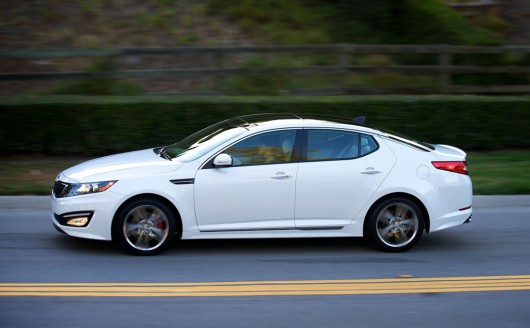Repair instructions
2013 Kia Optima Oil Type and Other Maintenance Information
- The 2013 Kia Optima requires motor oil with a viscosity rating of 5W-30 or 5W-40.
- Oil capacity is 4.6 liters (4.9 quarts).
- Regular oil changes should be done every 6 months or between 7,500 to 12,000 miles, depending on driving conditions.
- Failing to change the oil on time can lead to engine problems.
What Type of Oil Does a 2013 Kia Optima Take?
For optimal performance, the 2013 Kia Optima is best suited for motor oil with a viscosity rating of 5W-30 or 5W-40. The engine has an oil capacity of 4.6 liters (4.9 quarts), so be sure to follow these specifications when performing oil changes to ensure proper lubrication and engine protection.

Synthetic vs. Conventional Oil: Which is Best?
While conventional oil is commonly used in many vehicles, synthetic oil offers superior performance in high temperatures and harsh conditions. It resists oil degradation better and provides enhanced protection during cold starts, which is particularly beneficial for drivers in colder climates. Synthetic oils tend to be pricier than conventional oils but offer long-term benefits, including extending engine life and improving fuel efficiency. For modern cars like the 2013 Optima, synthetic oil is highly recommended.
Does the Brand of Oil Matter?
As long as the motor oil meets the API (American Petroleum Institute) standards specified by Kia, the brand you choose won’t impact engine performance. However, it’s crucial to select oil that’s designed for your vehicle’s engine type and viscosity requirements. Always verify the oil’s specifications to ensure it matches your Kia’s needs and avoid any potential issues down the line.
Recommended Oil Change Interval
Kia recommends changing the oil in your 2013 Optima every 3,000 to 5,000 miles for optimal performance. However, many drivers opt to follow general industry guidelines, which suggest an oil change every 7,500 to 12,000 miles or every 6 months, whichever comes first. If you drive in extreme conditions—such as frequent short trips, dusty roads, or very cold weather—you may need to change the oil more frequently. Always consult your owner’s manual for specific intervals tailored to your driving habits.
The Importance of Timely Oil Changes
Neglecting timely oil changes can lead to serious engine damage. As oil ages, it loses its ability to lubricate engine parts effectively, and it may become thick or contaminated with sludge. This can cause increased friction and heat buildup, putting additional strain on engine components. In the long run, failing to change the oil on time may result in costly engine repairs. Keep your Optima running smoothly by sticking to the recommended oil change schedule.
By adhering to these oil and maintenance guidelines, you can keep your 2013 Kia Optima running in peak condition and avoid potential engine issues down the road.
